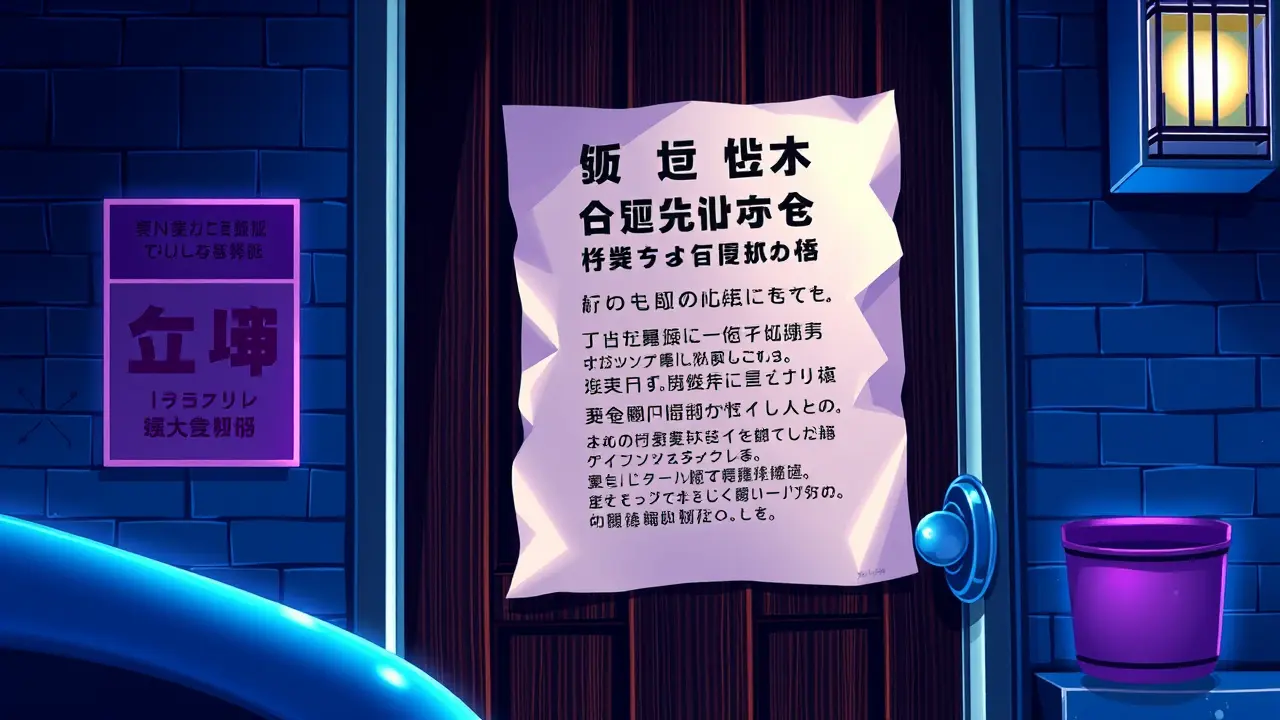
Politicshuman rightsRefugees and Migration
Malaysian teacher in Japan receives xenophobic 'leave' note.
LA
Laura Bennett
3 hours ago7 min read1 comments
The front door of a Malaysian English teacher’s home in Yokohama became the canvas for a chilling message this week, a stark reminder that beneath Japan’s famously polite exterior, currents of xenophobia can surface in the most personal of spaces. Taped to his door and his car, a flier, written in Japanese and signed by the 'Yokohama City Conservative Faction,' delivered a blunt, hate-filled directive: 'To foreigners, please leave Japan.You are not welcome here. Japan doesn’t need immigrants.Japanese taxes are not paid for you. Go back to your.' The teacher’s decision to share photos of this note online did more than just document an act of bigotry; it opened a national conversation, sparking a wave of outrage that was quickly met with an equally powerful outpouring of support from Japanese citizens and fellow foreigners alike, creating a complex tapestry of modern Japanese society grappling with its identity. This incident is not an isolated one, but rather a symptom of a deeper, more protracted anxiety in a nation with a historically homogenous self-image now facing the realities of a shrinking population and an increasing reliance on foreign labor to sustain its economy.I’ve spoken with several long-term foreign residents in Tokyo and Osaka, and their stories often echo a similar theme: the daily microaggressions of being stared at on the train or the frustration of being complimented on their Japanese fluency as if it were an astonishing feat are part of a fabric of otherness they navigate, but a direct, written command to leave cuts far deeper, transforming a feeling of unease into a tangible threat. The location, Yokohama, is particularly poignant; as one of Japan’s most international port cities, home to a historic Chinatown and a diverse community, it stands as a symbol of the very integration the note’s authors reject.The response on Japanese social media, where the story went viral, reveals a nation at a crossroads. While the vile sentiments of a minority found a platform, they were overwhelmingly drowned out by messages of apology and solidarity, with many Japanese users expressing shame and urging the teacher to stay, highlighting a generational and ideological rift.This event forces us to look beyond the immediate shock and consider the structural underpinnings—the political rhetoric that sometimes subtly frames foreigners as a problem to be managed rather than neighbors to be welcomed, the educational gaps in teaching a multicultural history, and the immense social pressure to conform that can make standing out as a foreigner a perpetual challenge. The emotional toll on the individual who found that note on his door is immeasurable; your home is supposed to be your sanctuary, and having that boundary violated with a message of pure rejection creates a psychological wound that no amount of online support can instantly heal. Yet, in his courage to share his experience, he has given a voice to the silent anxieties of many and has, perhaps inadvertently, become a catalyst for a more honest and necessary dialogue about what it truly means to belong in 21st-century Japan.
#Xenophobia
#Japan
#Malaysia
#Teacher
#Outrage
#Support
#Immigration
#Discrimination
#featured
Stay Informed. Act Smarter.
Get weekly highlights, major headlines, and expert insights — then put your knowledge to work in our live prediction markets.
Related News
Comments
Loading comments...
© 2025 Outpoll Service LTD. All rights reserved.












